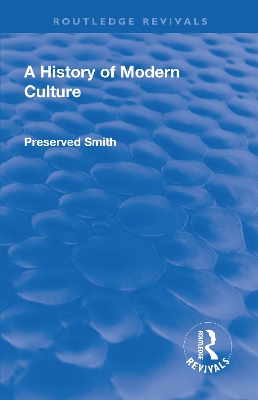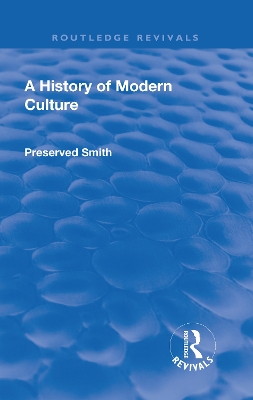Routledge Revivals
2 total works
The best excuse for writing the history of anything is the intrinsic interest of the subject. Most men of past generations have thought, and many men still think, of politics as the warp and woof of social life. History for a long time therefore treated chiefly politics. Then came the economists to arouse the interest of scholars and of the public in the production and distribution of wealth. Economic history rightly absorbs much attention, for it illumines, with its new searchlight, many a dark corner of the past, and explains many features of present-day society.
But to many men today the most interesting thing about society is its culture; just as the most interesting thing about an individual is his thought. Indeed, it has begun to be suspected that even politics and economics, each sometimes worshipped as a First Cause, are but secondary effects of something still deeper, namely, of the progress of man's intellectual life. The present volume aims to exhibit, as a unified whole, the state and progress of modern culture.

